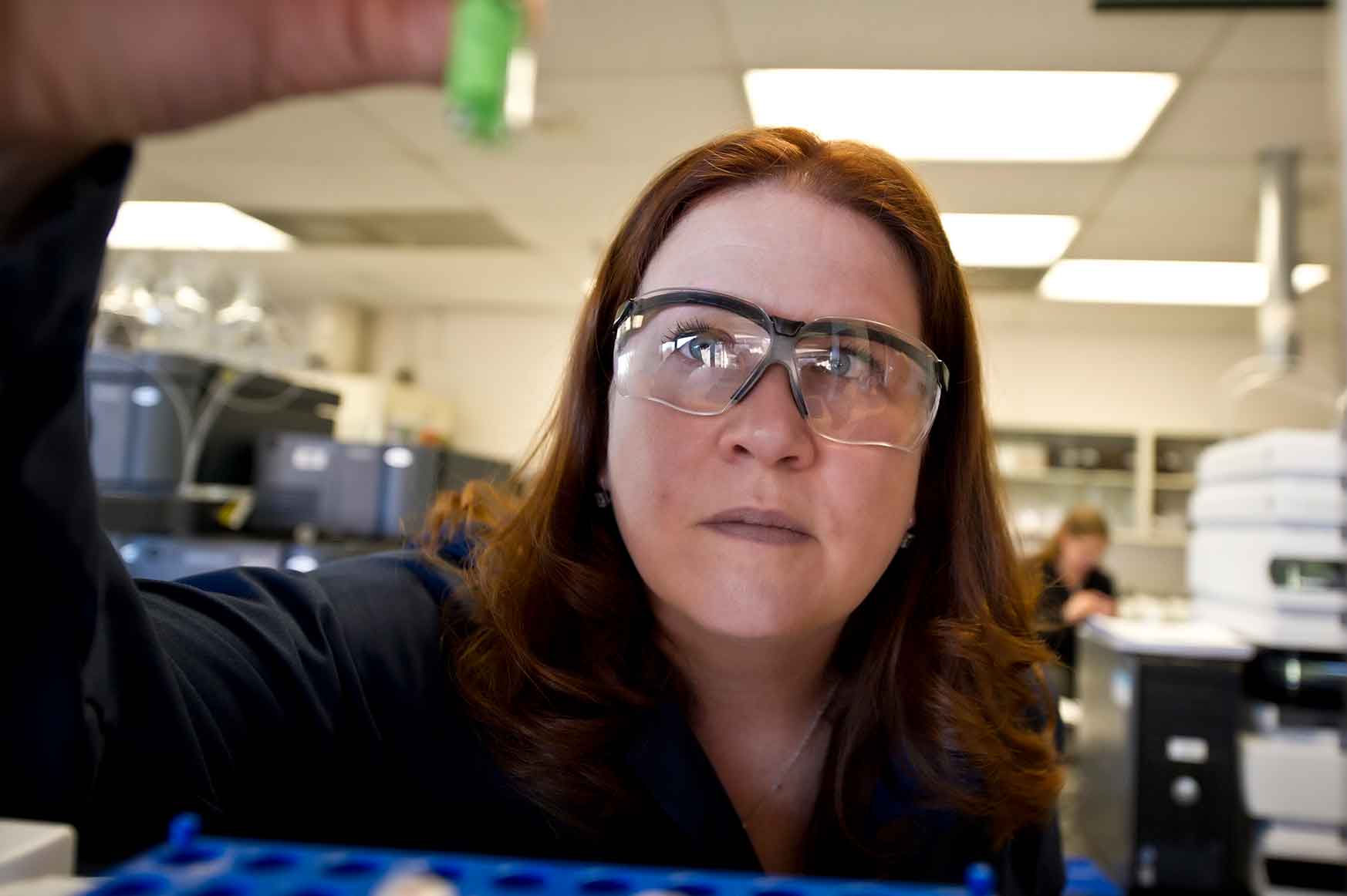NREL-Led Effort Results in Groundbreaking New ASTM High-Octane Fuel Standard

The NREL team was selected to lead the effort based on its successful track record in setting fuel standards. Photo by Dennis Schroeder, NREL 20114.
ASTM International recently announced the release of a new high-octane fuel standard that is expected to impact the development of gasoline products compatible with vehicles that feature high-performance fuel-efficient engines. Formation and approval of the standard was led by Dr. Robert L. McCormick, an NREL transportation research engineer.
This new standard – "Specification for 100 Research Octane Number Test Fuel for Automotive Spark-Ignition Engines" (D8067) – is meant to set common specifications for the higher research octane number (RON) fuels being investigated by the automotive and fuel industries.
Innovations in spark-ignition engine technologies that improve performance and fuel economy, such as higher compression ratios, higher power densities, increased turbocharger boost pressures, downsizing, and downspeeding, are more feasible with high-RON fuels.
"This new ASTM standard will help define a template for future vehicle certification fuel, with the ultimate goal of an affordable 100-RON gasoline that can be made at commercial scale to optimize engine performance," said McCormick.
The request for the new standard came directly from an industry alliance of automakers, biofuel feedstock and producer groups, and agribusiness partners. ASTM's Petroleum Products, Liquid Fuels, and Lubricants Committee tapped McCormick as technical lead of the effort based on the successful track record he and his NREL team have established in setting fuel standards. Those efforts have included extensive work in developing and updating ASTM standards for B100 for blending (D6751), biodiesel blends (D7467), and E85 (D5798).
"We were able to create and pass this high-octane fuel specification relatively quickly, thanks to the high level of technical expertise and close collaboration of ASTM partners," McCormick said.
The new standard was developed and passed in one year, after the ASTM work group reviewed technical data on the fuel requirements of high compression ratio and high efficiency spark-ignited engines to identify criteria for the new standard.
NREL's fuels performance research takes a whole-vehicle-systems approach, not just setting fuel standards, but also examining co-optimization of high-performance fuels and internal combustion engines, fuel production, infrastructure, handling, combustion, and emissions. ASTM has defined and set more than 12,000 standards that are in operation globally to improve product quality, enhance health and safety, strengthen market access and trade, and build consumer confidence.
Learn more about NREL’s sustainable transportation research.
Last Updated May 28, 2025
